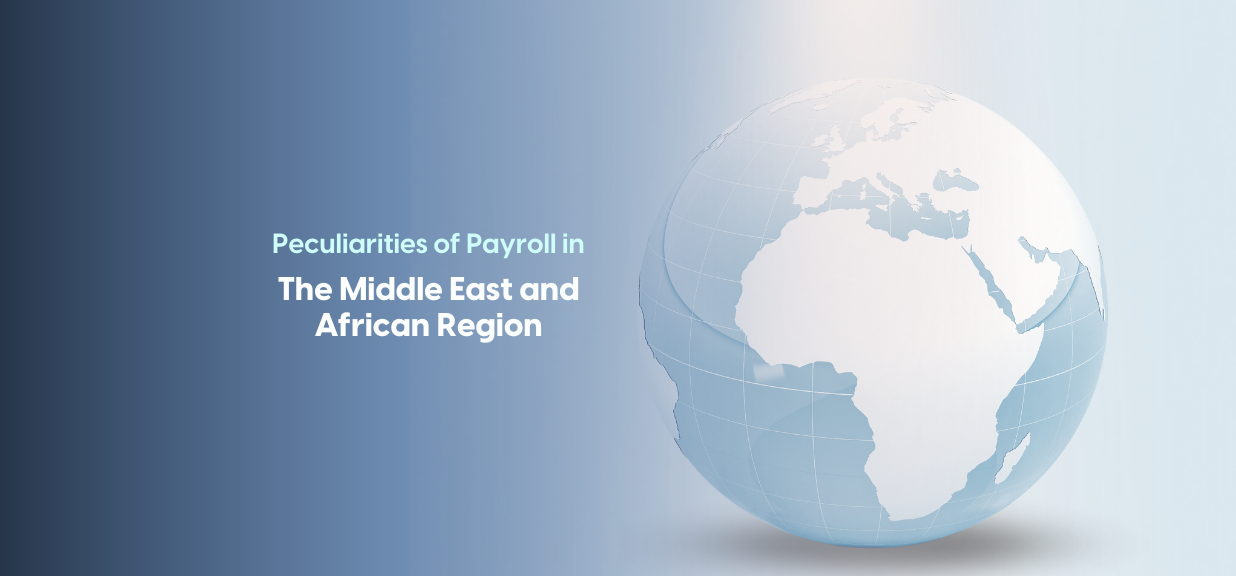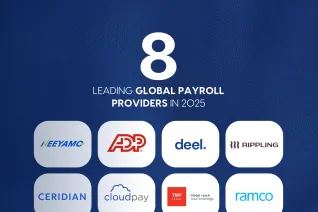A Spotlight on Global Payroll Compliance Requirements in the Middle East and African regions

How does the sound of a promising salary, an attractive relocation, and other benefits sound to you? Well, don’t get started on the packing yet! The lure of a fresh start is tempting, but it comes with complexities. The Middle East and Africa (MEA) are very different areas with a lot to offer to businesses that are looking to expand.
The peculiarities of payroll in the Middle East and Africa can get very complicated. When conducting a business in the Middle East, you must consider the region’s quirks, which can become complex and convoluted if your company has branches in different countries within that region.
As a result, making sense of multi-country payroll in the Middle East needs some critical thought.
The United Arab Emirates has seen rapid changes that support its growing economy in recent decades. The UAE, which is made up of seven Emirates, has long attracted expanding firms from across the world, thanks to its favorable tax policy, free trade zones, and access to some of the world’s largest and fastest-growing markets.
Employment Considerations
In contrast to many other nations, the UAE has no trade unions and no collective bargaining agreements. The UAE has created offices to give legal assistance to workers. The maximum workweek and working hours in the private sector usually are eight hours per day, or 48 hours per week, according to Article 65 of the UAE Labour Law. They can also differ based on the domain of a business and the education or kind of person.
Employee Compensations
Although there is no legal minimum wage in the UAE, the UAE Labour Law requires that all employees’ fundamental necessities be addressed. Employers must first register with the Ministry of Human Resources and Emiratisation (MoHRE) and then subscribe to the Wages Protection System and the UAE’s electronic pay transfer system (WPS). This mechanism must be used to pay all employee wages. Heavy fines can be imposed if salaries are not paid on time or at all.
Tax Considerations
On January 1, 2018, the Ministry of Finance implemented VAT at the regular rate of 5%. This is still a reasonably low VAT rate in comparison to many other nations, and it is unlikely to prevent employees or businesses from coming to the UAE.
While the Gateway to the Middle East has several challenges when it comes to payroll processing, the rest of the Middle East economy isn’t far behind. For example, it is mandatory to have a written employment contract in triplicate and in Arabic in Egypt. In an offer letter and job contract, the salary and other compensation amounts should always be stated in Egyptian pounds rather than a foreign currency.
In the Egyptian economy, several tax deductions are available, including a personal deduction of EGP 7,000 each year (in addition to the first EGP 6,500 of income that is subject to a 0 percent tax). While this is the scenario with Egypt, Oman, and Saudi Arabia do not have a personal income tax. In Bahrain also, there is no personal income tax. Individuals employed by a natural person, a legal body, or a business in Bahrain, on the other hand, are subject to Bahrain’s Social Insurance Organization (SIO) guidelines.
The complexities of the African Market
While we’ve looked at some of the highlights in the Middle Eastern region, the South African market is not too far behind with its complications. South Africa is Africa’s second-largest economy and is an excellent place to start for global companies looking to develop in the African market. Throw in COVID-19 and the global shift to remote and hybrid working, and you get payroll and HR challenges with a level of complexity that many businesses have never faced before.
Advancement of Technology
Payroll in Africa is entering a new phase because of improvements in infrastructure and increased internet connectivity in many African nations. Many nations now allow citizens to e-file tax payments through their secure websites, and many also provide materials in multiple languages. Global outsourcing partners and internal business payroll departments can now move throughout Africa with greater ease.
Payroll and human resources professionals have access to a trove of data that may help businesses improve their strategy, automate compliance, and attract and retain top people. However, such insights will be buried behind an ever-increasing mountain of paperwork without a specialized system.
Tax Regulations
Pay As You Earn (PAYE) and Standard Income Tax on Employees must be registered with the South African Revenue Service (SARS) by any company with at least one employee. Businesses that employ people must additionally pay the district council a gross income or salary-related levy.
Nigeria does not have any social taxes, although it does levy a payroll tax to finance the Industrial Training Fund, as well as a mandated private health insurance and retirement plan. The Federal Inland Revenue Service (FIRS) collects and administers income taxes (Personal Income Tax Act (PITA)).
Businesses that use specialist payroll and HR technology to free up time to focus on understanding employee expectations, grasping the cultural benefits that will attract the best talent, and putting in place the necessary systems and processes to engage and retain that talent will be the most successful. Neeyamo was founded with the intent to discover and address the white spaces in HR technology and the HR service delivery landscape, including servicing under-addressed geographies and under-served markets.
Get in touch with us to know more about how we can redefine your HR landscape.
Latest Resources
Stay informed with latest updates
If you're curious and have a thirst for knowledge pertaining to the HR, payroll, and EOR universe, don't miss out on subscribing to our resources.















